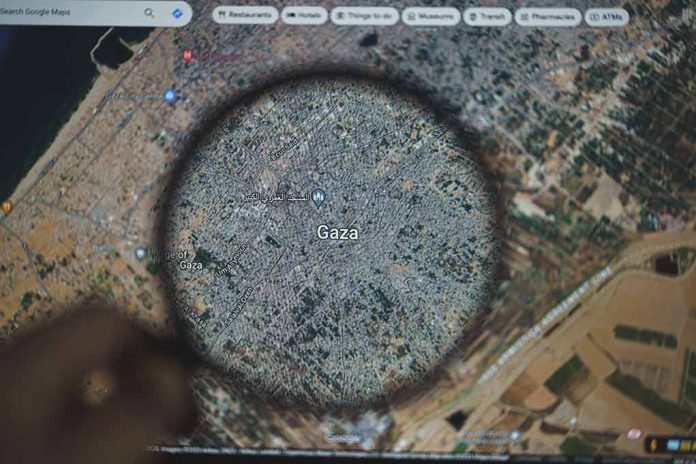
The exploitation of humanitarian cash transfers in Gaza has exposed a dire conflict between aid intentions and real-world implementation, revealing how funds meant for vulnerable civilians are enriching Hamas instead.
Key Takeaways
- United Nations cash transfers intended for Gaza are being co-opted by Hamas, benefiting the terrorist group’s financial situation.
- The conversion of digital aid to cash incurs significant fees, which affects civilians’ purchasing power for essentials.
- Hamas’s control over financial flows creates a shadow banking system within Gaza.
- Efforts to implement digital alternatives face challenges due to economic and political complexities.
Manipulation of Aid by Hamas
United Nations agencies provide financial aid to Gaza to support thousands of families. However, Hamas exploits its position as the de facto ruler to control cash flows and gain financially from these funds. Residents face hefty fees, reportedly between 20% to 30%, to convert their digital aid into cash, effectively diminishing the aid’s intended impact.
The manipulation by Hamas, along with affiliated money changers, has created a shadow banking system. This exploitation diverts significant aid from reaching civilians and benefits Hamas financially. Such practices underscore the extreme vulnerability of aid initiatives in politically unstable regions and the potential risks of financing terrorism inadvertently.
Efforts and Challenges
Organizations like UNICEF have introduced digital cash payments through e-wallets to circumvent cash conversion fees. Yet, these adaptations face immense challenges given the complex interplay of economic hardship—and the high inflation rate that persists. Efforts to balance security concerns with efficient aid delivery are imperative while ensuring aid reaches the civilians without bolstering Hamas.
“Hamas exploits its role as the de facto ruler of Gaza to extract financial gains from aid money sent by U.N. organizations to civilians via apps still operating in the region,” Eyal Ofer told a news outlet.
The World Food Programme declined to comment on the appropriateness of these transactions, but reports indicate a pressing issue as aid must still combat the threat of food insecurity affecting a large segment of Gaza’s population. Israel’s diplomatic bodies have raised concerns over this aid manipulation, sparking discussions at the U.N. level.
Future Path
The international community must strategize effectively to combat terrorist financing while supporting genuinely needed humanitarian aid. Importantly, proposals like canceling large currency bills, as suggested by Israeli officials, aim to weaken Hamas’s finances indirectly but require cautious deliberation to avoid unintended consequences.
“If an investigator in Israel can figure it out, the aid agencies either knew or should have known. Twenty to thirty percent is just ridiculous. That’s extortion. It’s what some have politely described as a ‘revolutionary tax.’ In fairness, the aid agencies might argue they had no alternative. It is the cost of doing business, but it would have been better if they were honest about it from the start,” said Peter Gallo, an international lawyer and former Office of Internal Oversight Services (OIOS) investigator at the U.N.
The path forward must blend robust oversight, effective technology adoption, and geopolitical negotiations to ensure humanitarian cash transfers fulfill their original purpose without enabling groups that threaten international security.


